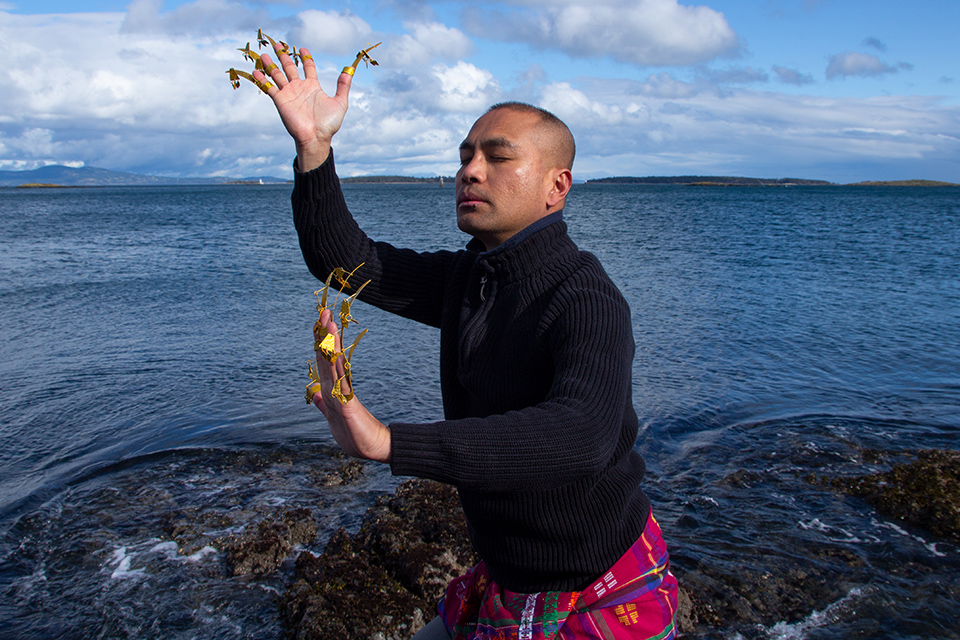Dennis Gupa’s work combines rituals, artistic mediums

Dennis Gupa, a PhD candidate in UVic’s Department of Theatre, is using an approach called applied theatre to amplify Filipino voices on climate change. Gupa is creating a series of stories — told through song, poetry, acting, and dance — in which people in the Philippines tell their own narratives about the impacts of typhoons and climate change.
Though there are different definitions of applied theatre, the most common theme is that it is a practice that reflects on social change. It is a process that mobilizes a community in order to create theatre that reflects their stories.
Gupa chose to use applied theatre as a way to reflect on the impacts of Typhoon Yolanda (also known as Typhoon Haiyan), a typhoon that occurred in 2013 and was one of the most deadly tropical typhoons recorded. As the impact of climate change makes typhoons stronger, knowledge about how to survive and rebuild is more important than ever.
At the same time, Gupa was having some doubts surrounding his art.
“What is this art that I’m doing when there is so much suffering in my country because of climate change?” said Gupa. “So that inspired me to look into theatre and climate change as a way to study it.”
The stories in Gupa’s project are derived from people’s lived experience on the island, and particularly how Typhoon Yolanda impacted their lives. The typhoon disaster stories are translated into songs, poetry, short scenes, and dances. The locals are directly transforming their experiences into artistic expressions.
One example is how they have used local Filipino ritual performances and incorporated applied theatre into them, such as the week-long celebration of Lent. When working with ritual performances, there is already a production process to work with and build on that people are already familiar with, which helped the locals embrace the idea of applied theatre.
“You are also allowing these people to contribute to the development of their traditions. They’re not just consumers of the tradition. They’re directly actively involved in the creation of that tradition,” said Gupa.
One focus of applied theatre is not just creating art, but giving people the tools to create their own. Gupa’s plan wasn’t just to go to the Philippines to get inspiration for his own art and leave, but setting up the local people to continue to create.
“I’m giving my training so that the teachers could [be empowered to] use theatre to teach in different kinds of courses. There’s a reciprocity happening, I call this symbolical gift giving,” he said.
Both applied and mainstream theatre emphasize collaboration; a production relies on many different people to be the best it can be. This is a value that Gupa has brought to his own work. For Gupa, it is important that applied theatre be engaging for the participants in order for them to connect with it and continue using it in the future.
“For us it has to be engaging, has to give agency to your participants. In applied theatre, we always look at the non-theatre trained people to come to [the] theatre, not just as the audience, but to be the creators of the whole theatre so that their expressions can grow and can grow within the community that they are rooted in,” said Gupa.
He also emphasizes the centrality of empowerment to applied theatre: it not only lets people tell their stories, but gives them tools to continue to do so in the future.
By creating new traditions, participants are imagining a better future for themselves. Gupa defines applied theatre as theatre of the future. “It’s a theatre of their future.”






